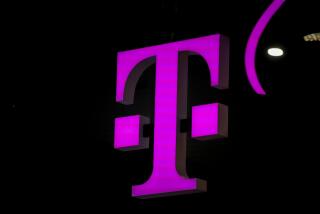Google’s Motorola gamble
- Share via
Google scraped together $12.5 billion from its petty cash fund this week to acquire Motorola Mobility Holdings, which once was a top manufacturer of cellphones and still is a leading maker of cable-TV converter boxes. Google executives said the primary lure was the cache of patents Motorola holds in the wireless field, which could help Google fend off the litigation that competitors have mounted against the company’s Android software for mobile phones and tablets. Other observers suspect that Google plans to use Motorola’s hardware acumen to help build its own Android-powered devices, in the hope of challenging Apple’s market-dominating iPhones and iPads.
The prospect of one of the Internet’s most powerful companies snapping up a major hardware manufacturer has some consumer advocates urging federal antitrust authorities to take a dim view of the deal. Said Jamie Court of Consumer Watchdog: “Should an information monopolist like Google have the power to dominate cellphone manufacturing and control patents that could require mobile phones to use its information-tracking Android operations and applications? The debate has just begun.”
When thinking about the implications of the deal, however, it’s useful to bear in mind one other headline-grabbing marriage of new and old economies: America Online’s January 2000 acquisition of Time Warner. Those companies were right about broadband transforming the media industry. They just weren’t able to translate their vision into a viable business.
Buying a famed but fading cellphone brand won’t magically grant Google the ability to build more popular devices than other manufacturers. Just look at Microsoft, the brand behind the also-ran UltimateTV digital video recorder, Zune portable music players and Kin phones. And the more phones Google sells, or the more it tailors the Android software to its own hardware designs, the more it risks driving companies such as Samsung and HTC away from its free Android operating system. The support of such partners is what has made Android the top smartphone operating system.
It’s nice to see Google put about a quarter of its gigantic hoard of cash to work on a deal whose value is based on the potential for more innovation, not more “efficiencies” (i.e., layoffs). And Google and Motorola Mobility seem a much better fit than AOL and Time Warner, given their common interest in phones and televisions. Yet the lesson of the latter pairing remains: A deal that looks brilliant (or threatening) on paper still has to succeed in the market, which in the tech world is a very tough place.
More to Read
A cure for the common opinion
Get thought-provoking perspectives with our weekly newsletter.
You may occasionally receive promotional content from the Los Angeles Times.






